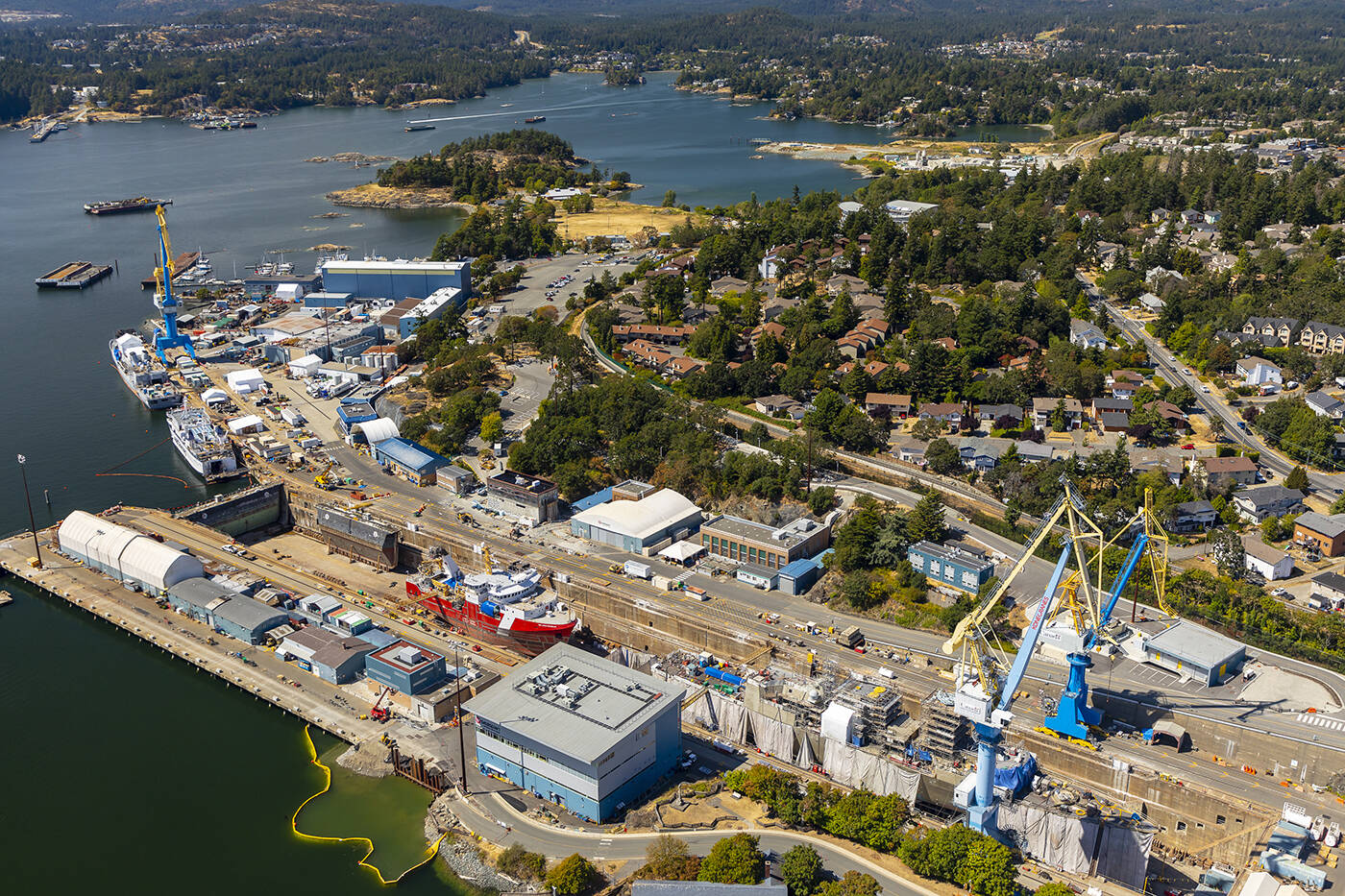The province is set to invest up to $25 million to improve B.C.’s marine sector, says Jobs Minister Brenda Bailey.
A new B.C. Maritime Industries Strategy is charting course for a more competitive and modernized marine sector and reduced carbon emissions. It was announced Wednesday (May 17), with funding to support shipyards meet the growing market demand and attract more investment to B.C.
“By modernizing our maritime infrastructure and better coordinating maritime industry contracts and workforce strategies, B.C. will support local companies to grow into new international markets, and open more career opportunities and jobs for British Columbians,” Bailey said.
The Association of B.C. Marine Industries will administer the funding, which allows companies to improve and increase regional facilities for shipbuilding, maintenance, refits and repairs.
ABCMI Chair Dan McGreer said the strategy will boost the local marine economy by supporting innovation in the sector in clean fuels and related technology, which will help B.C. achieve its GHG-reduction targets.
“The strategy will be a catalyst for the growth of the B.C. marine industry and lead to greater employment in well-paying future-ready jobs.”
B.C. has the largest marine economy in Canada – more than double the size of the next two largest, Quebec and Nova Scotia. It’s centred around the Port of Vancouver, Canada’s largest port and North America’s third-largest.
British Columbia’s ship-building and other related industries have seen a revival in recent years. Key among those investments is the National Shipbuilding Strategy, a decades-long project to renew Canada’s federal fleet of combat and non-combat vessels.
Vancouver’s Seaspan Shipyards is one of the three companies participating in the NSS and the company recently crossed the $2 billion mark in contracts awarded to Canadian companies for the design and construction of new, large non-combat vessels for the Royal Canadian Navy and the Canadian Coast Guard.
This includes the supply-chain for three ships already delivered, the three currently under construction in the shipyard and the two-classes of vessels under design.
The industry recently received another boost when the federal government approved the Roberts Bank Terminal 2 port expansion. The project is a three-berth marine container terminal located at Roberts Bank in Delta, about 35 kilometres south of Vancouver.
The federal government said project would increase the port’s capacity by 50 per cent.
RELATED: Ottawa cites jobs, capacity, approves B.C.’s Roberts Bank Terminal 2 port expansion
Despite that, the industry continues to face pressure from foreign competitors with cheap labour costs, while dealing with labour shortages at home and demands to decarbonize in the face of climate change.
@wolfgangdepner
wolfgang.depner@blackpress.ca
Like us on Facebook and follow us on Twitter.

